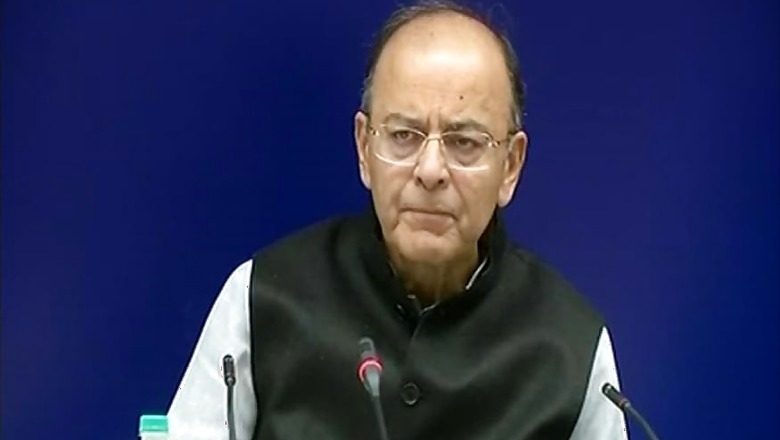
views
New Delhi: Finance Minister Arun Jaitley may flag a raft of farm-centric measures in Budget 2018, including a state-subsidised income support scheme, an agriculture export plan and schemes for dairy and fishery, demonstrating the government's intent to walk the talk on rural distress ahead of next year's Lok Sabha elections.
The government is also set to launch a "Sweet Revolution" to boost bee farming as part of the broader strategy to improve income from non-traditional agricultural sources. Jaitley may also flag the launch of a new agricultural exports policy, to lift farm income and deal with local gluts. These measures will be central to the government's plan to double farm incomes by 2022.
Amid reports of simmering rural discontent, Finance Minister Arun Jaitley's fifth and last full budget in the NDA government's current term, will likely seek to decisively shift the policy focus towards 'farmers' income', as opposed to the decades-old output-focussed 'food policy', sources told CNN-News18.
It is also likely that the Finance Minister may announce a 'Price Deficiency Payment Mechanism', on the lines that the Madhya Pradesh government is currently implementing through its Bhavantar Bhugtan Yojana.
The measures, likely to be announced in Budget 2018 that Jaitley will present on February 1, could also include a subsidy scheme for machine-aided crop residue shredding and contain pollution caused by stubble burning, particularly in north-west India.
NITI Aayog, the government's go-to policy think tank, has also favoured launching a deficiency payments system under which a subsidy would be provided on targeted crops if rates fall below a minimum support price (MSP)-linked threshold.
"This approach would not require procurement and thereby preventing the accumulation of unwanted stocks. More importantly, it would spread price incentives to producers in all the regions and all the crops considered important for providing price support," a NITI Aayog report said last year.
Such a system will be effective for those crops where procurement cannot be ensured.
MP Chief Minister Shivraj Singh Chouhan launched the Bhavantar Bhugtan Yojana scheme last October as rising discontent and farmer protests in Mandsaur in June became emblematic of a festering agrarian crisis across north, west and central India.
Under the scheme farmers compensated for the difference between the government-announced MSPs for select crops and their actual market prices.
The Centre may launch a nation-wide scheme, proposing to share the cost equally with the states. To avail this benefit, each farmer would have to register with the nearest APMC mandi and report the total area sown. The subsidy may be paid via Direct Benefit Transfer (DBT) into the farmers' Aadhaar-linked bank account.
The government is also examining a vegetable-centric scheme, focused on tomatoes, onions and potatoes, to protect farmers' remuneration in situations of price crashes. This year a glut and the resultant price crash has prompted many farmers to dump potato produce in mandis, particularly in West Bengal and Uttar Pradesh.
The export policy will stipulate norms for making India's farm produce, particularly in fruits and vegetables, compatible with global food-safety or phytosanitary requirements. The policy will focus on nearly 25 farm export clusters.




















Comments
0 comment